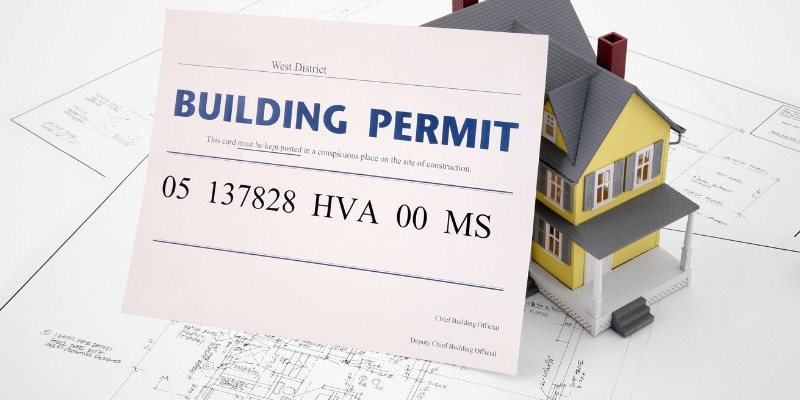Navigating building regulations can be intricate, but here’s something most homeowners might overlook: almost every town and city mandates a permit when it’s time to replace a water heater. The codes, intricate as they are, vary from state to state, but the underlying essence remains – safeguarding residents. When we talk about installing a new water heater, adherence to the most recent city codes is not just a bureaucratic procedure but a crucial safety measure.
If a water heater isn’t set up right, it can be dangerous. An installation without a temperature and pressure relief valve could potentially lead to an explosion. Beyond just the immediate physical hazards, there are many other risks. Incorrect installation can be an open invitation to electrical hazards and even fires. For those leaning towards a gas water heater, ensuring the gas line is impeccably installed is paramount to prevent leaks.
Electric water heaters come with their own set of challenges. Proper wiring, tailored to the water heater’s dimensions, is fundamental. Over the years, codes have evolved, reflecting a more nuanced understanding of these appliances and their integration into our homes. Newer regulations may encompass additional requirements for replacing or installing a water heater.
So, if you’re considering an upgrade or replacement, a thorough review of your local codes is essential. What is the logic behind these codes? They’re meticulously established for our safety, ensuring we enjoy those warm showers without a worry in the world.
Why Do We Need a Permit when Replacing a Water Heater?
So, you might wonder, “Why the fuss about a permit?” Here’s why:
Safety Concerns
At first glance, water heaters might appear peaceful, merely another household appliance. But delve more profound, and you realize they are complex devices, especially the gas-operated ones. If mishandled or improperly set up, they can transform from beneficial equipment to potential dangers in our homes.
A permit isn’t a mere formality. Instead, it’s a safeguard, ensuring that every water heater installation adheres to stringent safety measures prescribed by local experts.
Regulations and Codes
As our homes are built on blueprints ensuring their stability, water heaters are governed by intricate codes and regulations. These aren’t arbitrary rules but are born out of years of expertise, research, and, sometimes, unfortunate incidents.
These codes aim not only to ensure that our heaters last long but also to ensure they function without causing harm.
Ensuring Quality Work
Think of a permit as a quality check. When there’s a permit in the mix, it usually means that professionals who understand the codes and regulations are in charge of the installation.
These are different from your average handypersons but are often experts trained to handle the nuances of water heater setups. This professional involvement ensures that the job isn’t just done but is done right. The result? Long-lasting, safe, and efficient water heating for your home.
Why Would I Need More Than One Type of Permit?
There may be conditions when you need more than one permit when replacing your water heater. While the thought of navigating multiple permits might seem daunting, there’s logic to the layers of bureaucracy.

Depending on the nature of your water heater replacement and the modifications it demands, you might find yourself in need of various permits. Let’s explore this further:
Electrical Permit
Electricity and water are a delicate mix, and ensuring their safe interaction is paramount. If your new water heater demands electrical adjustments or outright changes, you’ll likely need an electrical permit.
Picture a scenario where the breaker or wire size of your existing setup needs to be equipped to handle the electrical load of your new appliance. In such cases, a permit is essential, ensuring that any changes are up to standard, thereby minimizing risks.
Plumbing Permit
Water heaters, by their very nature, are intricately linked to a home’s plumbing system. Sometimes, introducing a new water heater might demand tweaks to the existing plumbing framework. This could be an extension of current water lines or even modifications to accommodate the new device.
When such changes are on the horizon, most building jurisdictions will request a plumbing permit. This isn’t just red tape; it’s a mechanism to ensure that any alterations to your plumbing are done safely, efficiently, and in line with established standards.
How to Apply for a Water Heater Permit
Before you groan at the thought of bureaucracy, let me tell you – obtaining a permit isn’t that hard:
- Contact Local Authorities: Contact your local building department or governing authority.
- Provide Necessary Documentation: This might include details about your property, the type of water heater, and the contractor details.
- Inspection Requirements: Once the installation is done, an inspection might be needed to ensure everything’s up to the mark.
Do I Need a Permit, or Will the Plumber Get One for Me?
Navigating the maze of permits can be confusing, especially if you need to become more familiar with the process. Regarding water heater replacement and the necessary permits, you might wonder: “Is this my responsibility or the plumber’s?”
In most cases, the licensed plumber or contractor you hire will handle the permit process. They have the expertise, know the local codes and regulations, and often have established relationships with local building departments. This makes it easier and more efficient for them to obtain the necessary permits.
However, it’s crucial to discuss this aspect explicitly with your plumber or contractor before starting the work. Some professionals might expect homeowners to handle the permit application themselves. Always clarify roles and responsibilities in advance to avoid misunderstandings or delays in the project.
Additionally, even if your plumber takes care of the permit, it’s still a good idea to stay informed. Ask for copies of the permits and any associated documentation. This ensures you have all the necessary paperwork, especially if you consider selling your property in the future or if any issues arise related to the installation.
What Happens If You Skip the Permit?
You might think it’s easier to bypass the permit process. But before you do, consider the potential consequences.
Fines and Legal Actions: Not adhering to the local regulations isn’t just about ticking off a checklist. If caught without the necessary permits, local authorities might impose fines. In more severe cases, you could even face legal repercussions.
Insurance Implications: No one plans for mishaps, but they do happen. If your newly installed water heater causes damage and you don’t have the required permit, your insurance may refuse to cover the costs, leaving you with a hefty bill.
Issues During Property Sale: Fast forward to when you want to sell your home. Potential buyers or property inspectors might ask about permits for any renovations or installations. Missing a permit for your water heater can become a significant hurdle, affecting the sale or the selling price.
Advantages of Having a Permit
Obtaining a permit isn’t just about sidestepping potential penalties. There are tangible benefits to ensuring everything’s above board.
Peace of Mind: There’s an innate satisfaction in knowing your water heater aligns with local standards. You can rest easy, confident that it’s been safely and correctly installed.
Enhanced Home Value: If you ever decide to move, potential buyers tend to gravitate towards homes that adhere to local regulations. A proper permit can boost your property’s appeal and its value.
Assured Safety: A permit isn’t merely a piece of paper; it’s an assurance. It guarantees that your installation was carried out under expert eyes, ensuring quality and safety every step of the way.
Installing and replacing a water heater is more than just a simple process. While the paperwork might seem daunting, a permit ensures safety, quality, and adherence to regulations. So, the next time you think of upgrading, remember the permit!






